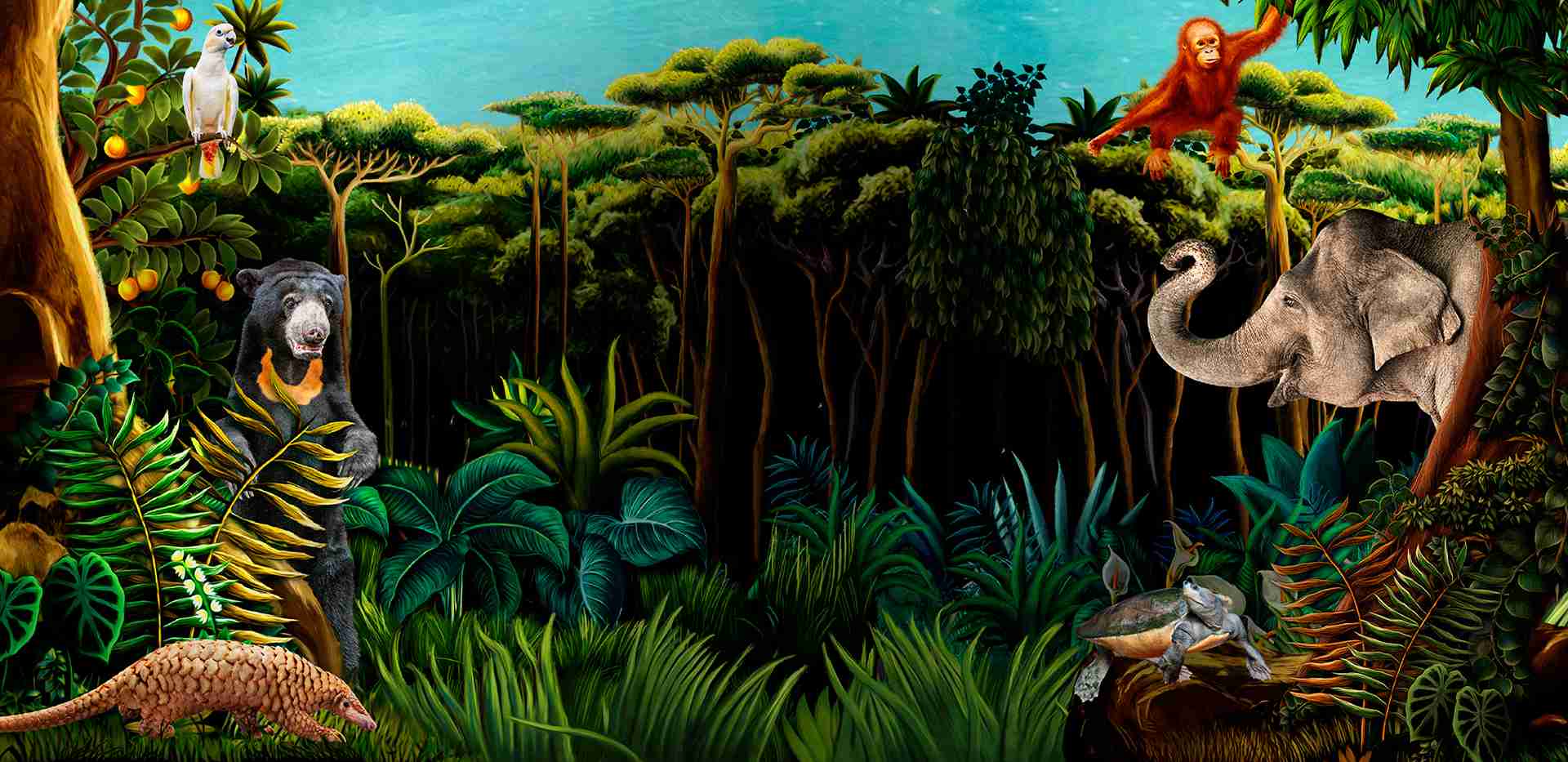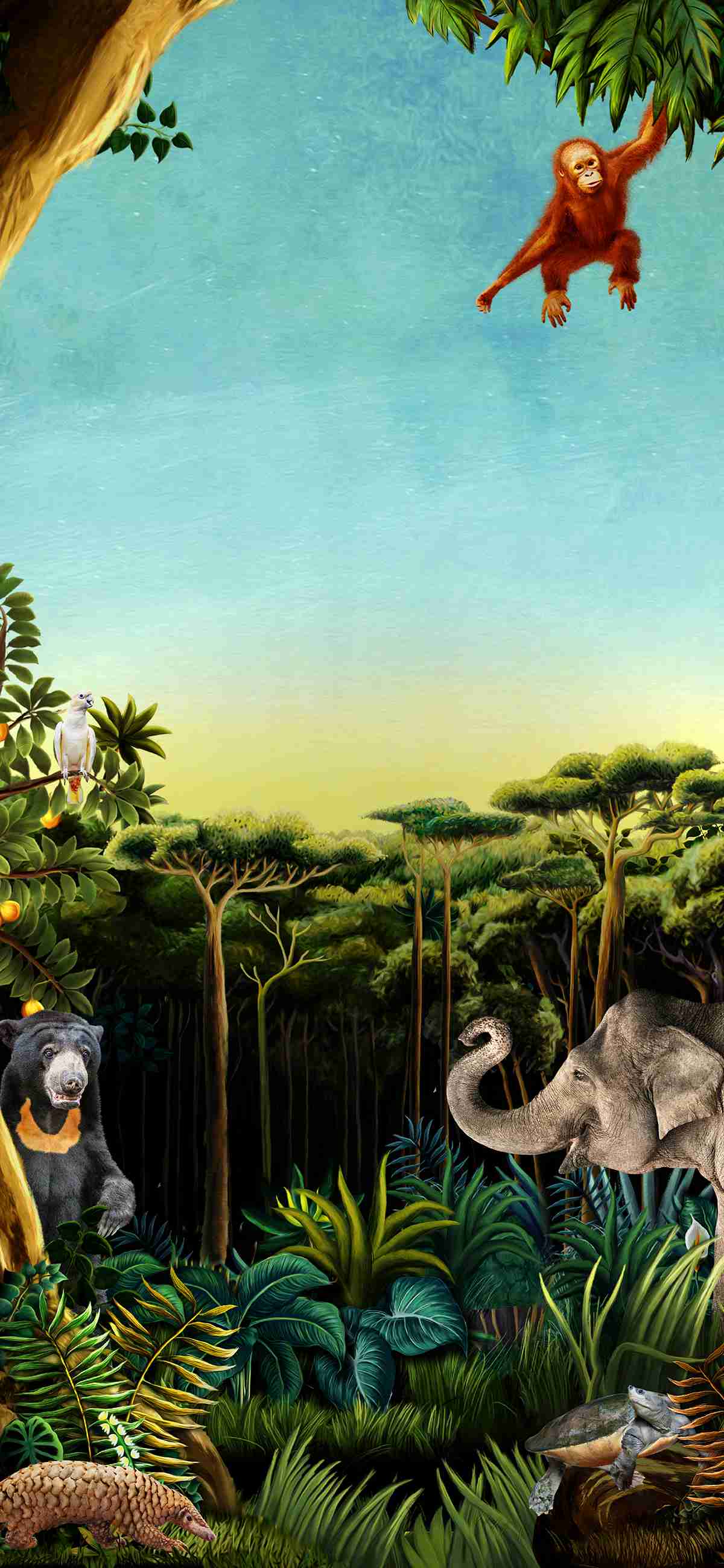Our Policies
We acquire and transfer out animals under our care through legal, ethical, sustainable, and humane practices:
- Most of our animals are born or hatched under human care, either in our parks or in other wildlife institutions
- Animals from external wildlife institutions come to our parks as part of exchanges, donations, breeding loans or as part of ex-situ managed breeding programmes
- Ex-situ managed breeding programmes refer to breeding programmes that take place outside of the animal’s natural habitat
- Some of our animals may be selected for relocation to other institutions as part of global or regional ex situ population management strategies (i.e. Managed Breeding Programmes)
- A Managed Breeding Programme is where participating zoos ensure species’ population sustainability through coordinated breeding based on genetic compatibility
- Before any of our animals are transferred, the following due diligence is applied:
- We ensure the receiving institution possesses adequate knowledge and resources to provide for the animal’s quality of life and welfare
- We review plans and photos of the animal’s intended living spaces and conduct onsite visits if necessary
- We provide additional training for the receiving institution’s animal care staff if necessary
- The receiving institution must care for and train our animals using ethical methods
- Some animals under our care include native species that were rescued and rehabilitated in our wildlife hospital
- These rescued native animals are only released back to the wild when they meet health requirements and have been deemed fit for release by our veterinary team
- All wildlife releases are approved and guided by the local wildlife authority — the National Parks Board (NParks)
As part of efforts to responsibly manage animals under our care, animals are selected periodically for relocation to other wildlife institutions, either as part of a managed program or to manage population numbers.
Before any animal is relocated to a receiving party, we will conduct due diligence to ensure the institution meets the requisite standards of ethics, animal care and welfare. This includes possessing the adequate resources to ensure the safety and welfare of the animals, allowing us access to view plans, photographs or conduct onsite visits of the facilities the animals will be held in, and providing additional training for staff that will be involved in caring for the received animal.
The receiving party will also be held to providing ethical treatment such as positive training reinforcement techniques for the animal. Preference will also be given to institutions that are accredited by at least one main international zoological association.
Animals that are relocated as part of an internationally managed programme (i.e. breeding programmes) must be approved by the designated species programme coordinator prior to move.
In the cases of rescued native wildlife, only those that have been assessed by our veterinary team and the species working group to be fit for release will be considered for release in the wild.
All wildlife releases will be conducted with the permission of and in accordance with the regulations and guidelines set out by AVA and or NParks.
We train our animals using best practice standards in animal welfare:
- We believe our animal programs and engagement sessions provide meaningful and memorable experiences that promote respect for wildlife and advocate behaviour change to save wildlife
- We commit to training all animals under our care using positive reinforcement training methods
- All of our animal programs and engagement sessions are guided by the following principles:
- We present our animals in a respectful manner
- We highlight and promote natural behaviours
- We share information about the animals that help guests appreciate and respect them
- We share information on threatened species and our efforts to save them
- We empower guests to conserve animals by taking practical actions
- We provide a safe environment for our animals and guests to have meaningful close encounters
We prioritise animal welfare and regularly evaluate our animals using science-based methods:
- We are guided by our animal welfare code that is based on global best practices incorporating the ‘Five Domains’ Model to ensure the animals thrive under our care
- The ‘Five Domains’ Model is a science-based framework for assessing animal welfare
- The five domains consist of the following:
- Nutrition: Providing our animals with adequate nutrition according to their needs
- Environment: Providing our animals with dynamic environments that meet or exceed international standards for the species under human care
- Physical health: Ensuring our animals stay in optimal health with professional animal carers and wildlife veterinary care
- Behaviour: Ensuring our animals are able to express a wide range of species-specific natural behaviours
- Mental: Meeting the requirements for the four domains above results in a positive mental state for the animals
The illegal wildlife trade is driving species to extinction. As an organisation dedicated to the protection of wildlife and their habitats, we do not endorse illegal, unsustainable, or unethical use and trade of wild animal and plant products.
We commit to:
- Encourage the use of products not harmful to threatened species
- Educate the public about illegal wildlife trade
- Engage our partners towards reducing illegal wildlife trade
- Keep records on use of wild animal and plant products
- NOT buy, use, sell, or serve products from wild animal species
- Buy, use, sell or serve only certified sustainable wild plant products
Mandai Group (or “The Group”) is committed to conducting our businesses ethically, responsibly and in compliance with all relevant laws, including relevant tax laws that would apply to it. We are dedicated to upholding this commitment, which is in line with our Code of Ethics & Professional Conduct.
This Tax Governance Policy Statement outlines our commitment towards tax governance and tax risk management.
Compliance with tax laws
In line with the Group’s Code of Ethics & Professional Conduct, we are committed to conducting our businesses ethically, responsibly, and in compliance with all relevant laws and regulations. We are also committed to maintaining a high standard of professional behaviour and conduct.
We respect the spirit of the relevant tax laws and regulations and commit to complying with our tax filing obligations. This includes making accurate and complete tax returns applicable to us and ensuring that we settle our taxes in a timely manner.
Our business and operations are driven by bona-fide commercial reasons and we neither engage in nor endorse artificial tax arrangements.
We monitor necessary tax laws and systems to update our policies and procedures where necessary, ensuring that we keep abreast with the relevant changes and developments.
Corporate governance structure for tax and tax risk management
The Group maintains a formalised governance structure for tax and tax risk management.
The Group Chief Financial Officer (GCFO) oversees the Tax function and engages qualified external tax advisors, where necessary, to assist in complying with its tax obligations and managing its tax affairs. The GCFO also keeps the Board informed on the Group’s tax matters, including keeping the Board apprised of the TGP, which is communicated within the relevant stakeholders within the Group.
The Group Tax Governance Policy clearly defines the tax roles and responsibilities for the Tax function. Such tax roles and responsibilities include tax risk management and planning, tax compliance and processes, tax governance policy and maintenance, updating and escalating to the senior management on tax matters as appropriate. The Group also ensure that the key personnel within the Tax function keeps up with the relevant tax updates and changes in tax law.
Relationship with tax authorities
The Group values a collaborative and transparent working relationship with the tax authorities based on mutual trust and respect.
We adopt a proactive approach in engaging with the tax authorities to seek clarifications where appropriate, including informal clarifications over emails and calls to discuss and resolve relevant material tax risks / uncertainties.
We perform regular reviews of our tax filings and are committed to making accurate and timely disclosures and rectification of tax errors to the tax authorities.
We also aim to provide accurate disclosure of necessary and relevant facts in our correspondences with tax authorities.
This Policy serves to define the fundamental environmental sustainability principles underpinning Mandai Wildlife Group’s (MWG’s) commitment to protect people, wildlife, and planet and comply with applicable regulations and laws. The Policy applies to anyone carrying out, participating in, or impacting MWG’s operations including but not limited to employees, consultants, contractors, temporary employees, franchisees, suppliers, and other business partners.
As human-induced climate change contributes to biodiversity loss, we recognise our responsibility to operate sustainably supporting a low carbon future throughout our business operations. To this end, we have set a goal to reach Net Zero GHG emissions for scope 1 and 2 by 2040 and across the value chain (scope 3) by 2050. Specifically, we are focused on optimising and decarbonising our operations rapidly; protecting and enhancing our biodiversity and environment in and around Mandai precinct and in Southeast Asia; and being a strong advocate to our guests and partners for the responsible and sustainable use of resources.
To implement this, we measure and track our environmental sustainability performance and manage environmental risks. We developed an Environmental Sustainability Strategy that outlines the key initiatives. The strategy comprises three strategic pillars: Sustainable Operations, Biodiversity Protection and Sustainability Advocacy. Finally, we will report our environmental performance results annually in a transparent manner.
The key focus areas of MWG’s Environmental Sustainability Policy are:
- Energy and Water Conservation
We prioritise minimising energy and water consumption through improving operational efficiency and employing efficient technologies. We strive towards shifting our energy consumption to 100% renewable energy through on-site solar panels and purchasing off-site renewable energy. We also recycle our wastewater and diversify our water sources for our operational needs, where feasible.
- Waste Reduction
We implement the principles of avoiding, reducing, reusing, recycling, and responsible disposal of waste in our operations. We work with industry partners to explore innovative solutions to increase our recycling rates, encourage circularity and promote further uses of our waste streams.
- Sustainable Transport
We are progressively converting our internal and external fleet from internal combustion engine (ICE) vehicles to electric vehicles (EV). To promote sustainable transport, we provide shuttle bus services, implement bicycle-friendly initiatives (bicycle lanes and bicycle racks), and EV chargers in our car parks.
- Responsible Procurement
We continuously seek out sustainable sources of goods and services that cause minimal harm to the planet, communities and wildlife.
- Sustainable Design
Any new developments and upgrading projects are designed to be carbon-efficient and nature-sensitive. New developments also consider the health and well-being of the occupants. The planned architectural and landscape features shall passively provide light, shade, ventilation, and thermal and visual comfort, with minimal carbon footprint.
- Biodiversity Protection
Together with and through our conservation arm Mandai Nature we implement initiatives to protect and enhance biodiversity, wildlife habitats and eco-connectivity in and around the precinct. We play an active role in protecting Singapore’s native wildlife and support conservation projects across Southeast Asia together with our partners.
- Environmental Management (Air, Water, Land, Noise)
We minimise impact to key sensitive receptors residing in and around the precinct through prevention and control. Environmental pollution control is taken into account at all stages of development, from planning to construction and operations.
- External Outreach and Engagement
We advocate for sustainable practices through engagement with our guests, volunteers, staff, and the wider community by raising awareness, providing educational programs, information, and resources.
- Partnership and Collaboration
We work with government, non-profit organisations, academic institutions, like-minded business partners and individuals to develop solutions to achieve our sustainability goals and mitigate the effects of climate change.

